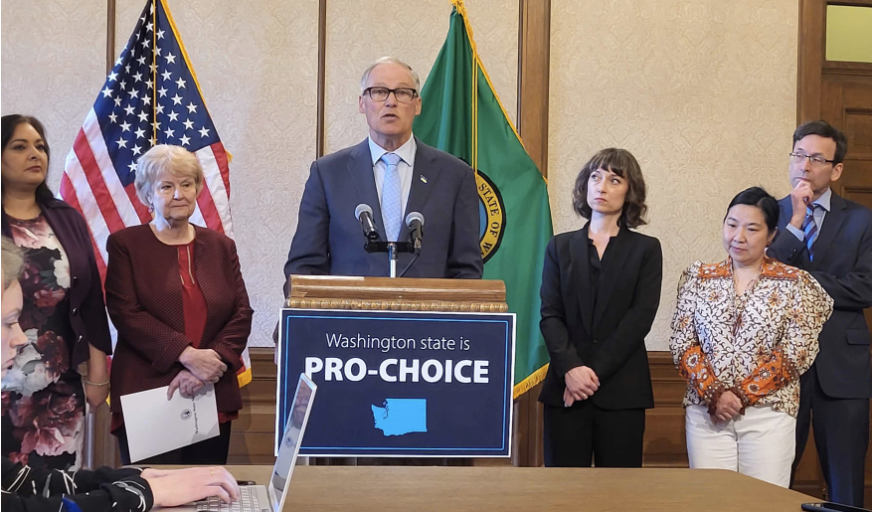
Washington officials plan to release abortion pill stockpile after SCOTUS upholds access
By: Jeanie Lindsay, Northwest News Networks
Washington officials say after the U.S. Supreme Court upheld broad access to the abortion pill mifepristone Thursday, the state will start to release its stockpile of the drug. But it’s unclear whether the state will renew that stockpile if the medication faces additional federal challenges.
In their unanimous decision, the Supreme Court justices decided the plaintiffs in the case didn’t have the legal standing to sue, preserving the drug’s Food and Drug Administration-approved status.
State officials are now crafting a plan for health care providers and pharmacies to access Washington’s stockpile before 2026, when the 30,000 doses are set to expire.
“We’ll be looking to activate that plan in the fall and next winter,” said Molly Voris, senior health policy advisor to Washington Gov. Jay Inslee. “I would say that will be a gradual distribution — I don’t anticipate us sending it all out at once.”
Under legislation that lawmakers approved when the state first stocked up on mifepristone, the doses held by the state must be sold at “list price,” plus a $5 storage and delivery fee.
Mifepristone has been available in the U.S. for more than two decades and is typically used in conjunction with the drug misoprostol to end early pregnancy.
Washington state stocked up on three years’ worth of the medication just before a federal judge in Texas revoked mifepristone’s FDA approval last year. That decision was put on pause while the U.S. Supreme Court weighed the case. Washington officials said its stockpile of doses – in addition to another years’ worth of the medication that’s being held at the University of Washington – would remain on hand in case the court ultimately ruled to limit access to the medication.
But even after Thursday’s ruling, people advocating for or against abortion access expect that additional challenges to mifepristone, and abortion more broadly, will return to federal courts. Three states — Idaho, Missouri, and Kansas — have already signaled interest in doing so.
Voris said officials are weighing what that means for restocking mifepristone.
“We want to make sure we get out what we have so it doesn’t expire, but we are exploring options on what that may look like going forward to see if we need to maintain a stockpile,” Voris said.
If there are renewed challenges to mifepristone access, Voris says she expects state lawmakers — and the next governor — will likely decide whether or not to renew the state’s stockpile when they return to Olympia for next year’s legislative session.















